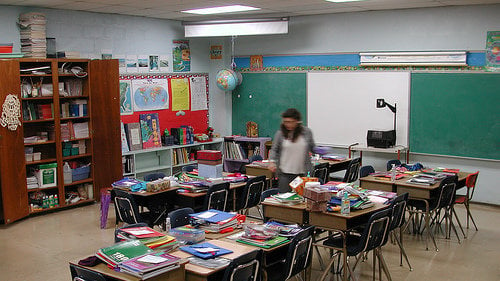Help Increase literacy by 3rd grade in Baltimore City

Help Increase literacy by 3rd grade in Baltimore City
Why this petition matters
Did you see our literacy Billboard?
70% of students who do not read proficiently by the end of 4th grade will end up on WELFARE or in JAIL.
In Baltimore, 7 out of 10 students are at RISK!!
The Warnock Foundation is committed to bringing awareness and solutions to the prominent issues our city is facing. We understand the power of awareness and how it develops positive solutions to impact generations of families in our city.
In his 1987 inaugural address, former mayor Kurt Schmoke introduced the well-intentioned motto: “The City That Reads”, but has Baltimore truly ever been a city with outstanding literate residents? When we look at literacy data, according to the
National Assessment of Educational Progress in 2017, only 13 percent of Baltimore City students in grades fourth and eighth are considered proficient or advanced. Illiteracy doesn’t impact one person it negatively impacts generations increasing the chances of generational poverty. A city with an abundance of resources should not have more than half of its residents illiterate.
Decades of research have shown that students from disadvantaged households perform less well in school, on average than their peers. UNICEF, reports, “Nearly a billion people will enter the 21st century unable to read a book or sign their names and two-thirds of them are women.” The ability to read by third grade is critical to a child’s success in school, life-long earning potential, and their ability to contribute to the nation’s economy and its security.
According to Begintoread.com
- Literacy is learned. Illiteracy is passed along by parents who cannot read or write.
- One child in four grows up, not knowing how to read.
- 43% of adults at Level 1 literacy skills live in poverty compared to only 4% of those at Level 5
- 3 out of 4 food stamp recipients perform in the lowest 2 literacy levels
- 90% of welfare recipients are high school dropouts
- Low literary costs $73 million per year in terms of direct health care costs. A recent study by Pfizer put the cost much higher.
Two-thirds of students who cannot read proficiently by the end of 4th grade will end up in jail or on welfare. This means that 70 percent of Baltimore City school students are at risk. We cannot begin to address crime issues without addressing literacy issues.
The Baltimore City school district says it is working to focus on literacy to improve student achievement in language arts and other subjects and is trying to train principals better. However, nothing is truly being done. It’s time for constituents in Baltimore to take matters into their own hands. The Baltimore illiteracy issue is not a confined issue for one stakeholder to resolve but an issue that many stakeholders in our communities should be addressing; parents, not for profit organizations/foundations, elected officials on all levels and the Boars of Education.
Call to action for parents and community members.
- Read to and with your children for at least a half an hour each day.
- Allow children to see you, as an adult, reading. Children mimic actions from the adults that are close to them.
- Volunteer at a school to read with K-3 graders
- Incorporate reading in everyday activities
- Advocate for the publishing of grade-level reading scores by the school in a transparent way so parents can make choices about which school to send their children to in Baltimore City.
- Advocate for more funding for Baltimore City schools with special funding allocated to reading specialists in every grade.
- Advocate for a partially elected school board to bring a citizen perspective into North Avenue. While there’s criticism that “there’s mixed evidence that partially elected school boards to add to education outcomes”, our response to it should be “could we be doing worse”?
Call to action for Baltimore City schools board members
- Stop implementing a curriculum in our education system that only focuses on teaching students how to pass the test instead of focusing on mastering proficiency levels for long-term outcomes
- Properly distribute funding to schools to have adequate resources that focus on positive literacy outcomes. Students should have adequate up to date textbooks
- Implement technology use in all Baltimore City school classrooms. A study done by Houghton Mifflin Harcourt in California showed that students using iPads saw their math test scores increase 20% in one year compared to students using traditional textbooks. Source: CNN
- Higher qualified teachers and pay them appropriately to retain them.
- Implement more early childhood education programs.
- Increase adequate summer enrichment programs
Sign our Petition
What does signing our petition means? The Warnock Foundation envisions addressing these issues in a multiple-step approach
Step 1- Bring awareness to the illiteracy issues within the Baltimore City School System through our billboard campaigns and data reports.
Step 2- In partnership with key stakeholders, create SOLUTIONS aimed at addressing generational illiteracy issues.
Step 3- Implement the solutions, hold the appropriate stakeholders accountable, and affect change in local and national policy.
If you are ready to change one of the most significant issues our city has been facing for decades sign our change.org petition and let your voice be part of collective impact to change the literacy proficiently in Baltimore City.
Sources
- https://www.begintoread.com/research/literacystatistics.html
- https://www.aecf.org/resources/early-warning-why-reading-by-the-end-of-third-grade-matters/
- https://www.aecf.org/resources/early-warning-confirmed/
- https://www.baltimoresun.com/education/bs-md-nations-report-card-20180409-story.html
- http://www.teachtheworldfoundation.com/recommended-reading-tablet-technology/2019/4/9/on-tablet-technology-as-a-powerful-educational-tool
Decision Makers
- Baltimore city board of education
- Maryland state government officials
- Baltimore city teachers
- Larry HoganGovernor - Maryland